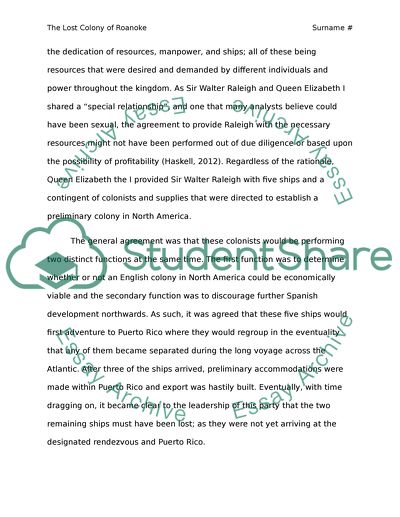Cite this document
(“The Lost Colony of Roanoke Essay Example | Topics and Well Written Essays - 1500 words”, n.d.)
Retrieved from https://studentshare.org/history/1653303-the-lost-colony-of-roanoke
Retrieved from https://studentshare.org/history/1653303-the-lost-colony-of-roanoke
(The Lost Colony of Roanoke Essay Example | Topics and Well Written Essays - 1500 Words)
https://studentshare.org/history/1653303-the-lost-colony-of-roanoke.
https://studentshare.org/history/1653303-the-lost-colony-of-roanoke.
“The Lost Colony of Roanoke Essay Example | Topics and Well Written Essays - 1500 Words”, n.d. https://studentshare.org/history/1653303-the-lost-colony-of-roanoke.


